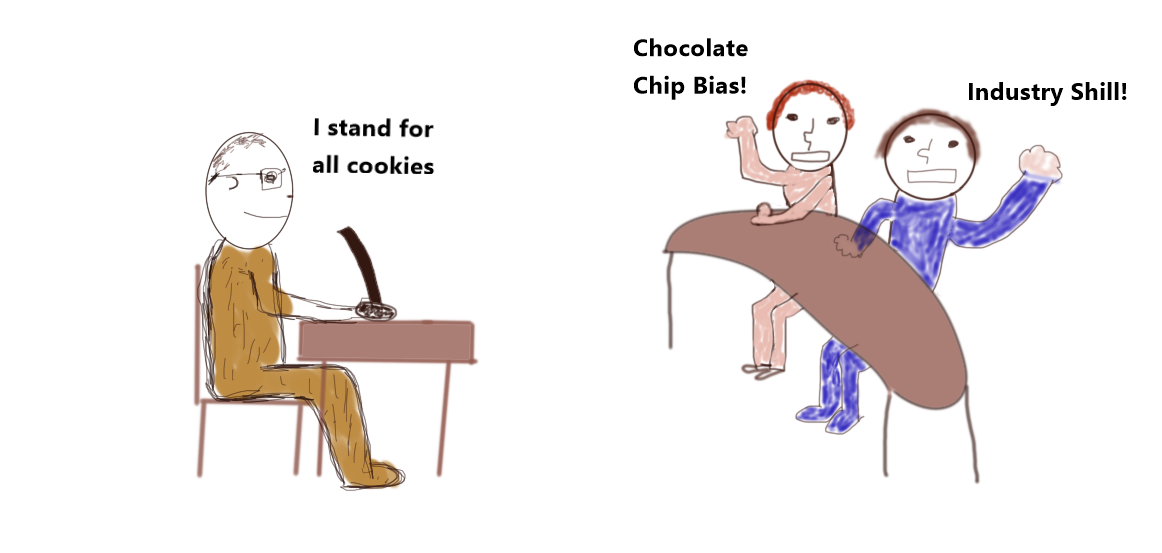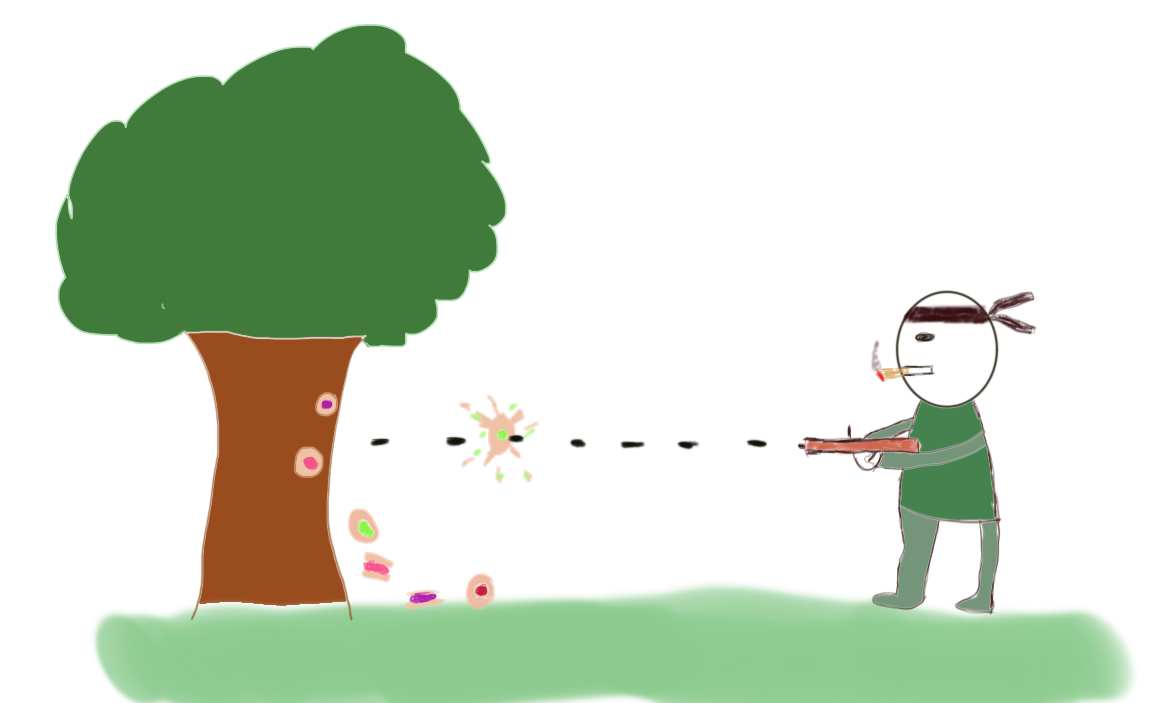Episode 17: Baked in Bias
A crazy thing happened – I was asked for advice. Such occurrences are thankfully rare so there is no need to worry. Everything is still fine. When I am asked for my advice or opinion, I certainly aim to offer the best information I can. Even if it means minutes of thankless googling I will help whoever comes to me seeking aid.
A new consumer of those delicious baked goods known as cookies asked me what the best ones were to try. After getting up from the floor where I had stumbled in learning someone has actually not eaten cookies before, I asked gauging questions to determine their likes and dislikes. Do they like soft and chewy or crunchy, where do they stand on chocolate, how about jellies and jams, nut allergies, dried fruits, icings, sprinkles (or if you prefer jimmies), even their tolerance for mint. Once I compiled the data, I analyzed it to find the best cookies to start with. Chocolate chip is a classic and a great starting point (but due to nut allergies, none added). Next, knowing they liked both crunchy and chewy with a touch of color was a solid sugar cookie with a good helping of colorful sprinkles for visual appeal. They like jams so a Linzer was on the list. Then finally they could wrap it up with a melt in your mouth shortbread cookie.
All was well and good until one day, upon reading one of my old posts, they saw my love of chocolate chip cookies. This information was not known earlier. I found myself before a panel who were questioning my confectionary decisions and claiming I had a clear bias for chocolate chip cookies. They believed that's why I recommended it first and then didn’t even mention oatmeal raisin. I had used my own personal power to drive chocolate chip cookie dominance and not let any others into the mix. I was the absolute worst person on the planet. How dare I!
Here we find ourselves in a nasty predicament of having a bias. Bias is something we all have to varying degrees. It is our tendency to think and act in certain ways based on our upbringing, likes and dislikes, social/political/religious affiliations or other influences relative to ourselves. It is, in fact, extremely difficult not to have some type of bias. Having a bias is often seen as bad (especially these days) because it means someone is making decisions, possibly serious ones, based on their personal beliefs and feelings and not on facts. A person’s bias may even lead them to ignore some facts or consider less relevant findings as more important.
The issue at hand is that we now consider a person having any kind of bias as instant grounds to discount their opinions or works. In my case above, they think that simply because I’m known to like one cookie type I can therefore not recommend other types to anyone. This is simply not true, though. Understanding we have biases allows us to still make good decisions. I recommended chocolate chip because it’s also a very popular cookie. Plus, I included a range of cookies including ones I don’t like (jelly in a cookie, who would do such a thing?). My own bias did not prevent me from providing a pleasurable eating experience. Trial judges have to do this when picking a jury – in an auto accident trial they may find a juror that was also in an accident and ask if that will affect their decision.
Giving into bias (or not realizing it’s there) is still a bad thing. This can show up in scientific research when a researcher may want to show their ideas are correct and discount evidence against it while lifting up lesser findings. News and media certainly have biases these days that can affect what is reported and how it is framed. Someone who is really into multiplayer video games may never recommend that anyone play a single player story adventure. An advocate for Big Jelly may say that the Linzer is the absolute pinnacle of cookie design and all others should go. In fact, industries can often have bias, especially in cases where one might sponsor a study – there’s a good chance it will make their product look amazing.
Bias isn’t automatically bad. We can recognize it and take steps to not let it affect our decisions, such as: considering negative information, looking at all alternatives, asking for other opinions, watching different news networks or reading dissenting opinions. When we see a person or industry accused of bias, we should look at what was done, study the outcome and ask ourselves if we see any bias. Just because we have a favorite cookie doesn’t mean we can’t try others. Now, If you’ll excuse me I must see to ridding the planet of jelly filled cookies.



